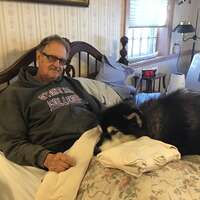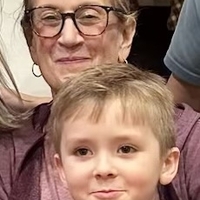Inside Access: The Enhanced Recovery After Cardiac Surgery Experts Retreat
Written By: Adam Pick, Patient Advocate, Author & Website Founder
Medical Experts: Daniel Engelman, MD; Subhasis Chatterjee, MD; Rawn Salenger, MD; Vicki Morton-Bailey, DNP; Rakesh Arora, MD; Michael Grant, MD
Published: November 16, 2023
The Enhanced Recovery After Cardiac Surgery Society (ERAS Cardiac) is a world-renowned team of medical experts that specialize in helping patients recover faster. Led by Dr. Daniel Engelman, the president of ERAS Cardiac and a leading cardiac surgeon at Baystate Health, this international nonprofit society is dedicated to developing and sharing evidence-based best practices for accelerated recovery.
To learn more about ERAS Cardiac, I was very fortunate to attend and to speak at the recent ERAS Cardiac Society Expert Retreat in Austin, Texas. Together, the ERAS Cardiac team and the attendees met for three days to discuss and debate improvements and cardiac guidelines to optimize your surgical journey.
Key Learnings from the ERAS Cardiac Expert Retreat
- The ERAS Cardiac pathway leverages a broad and holistic approach to patient recovery that spans the patient journey before, during and after heart surgery.
- Prior to surgery, the ERAS Cardiac guidelines focus on patient motivation. Dr. Subhasis Chatterjee, ERAS Cardiac Board Member and Critical Care Specialist at Baylor College of Medicine, states, “ERAS really focuses on motivation and that motivation begins even before surgery. We want patients to feel that they’re just not a passenger on this journey, but they’re actually a driver. We want patients in the best possible condition and shape that they can be in. That might mean exercise beforehand, better nutrition beforehand. That also includes stopping smoking and alcohol for a period of time. All of this is designed so that the patient’s recovery can be better.”
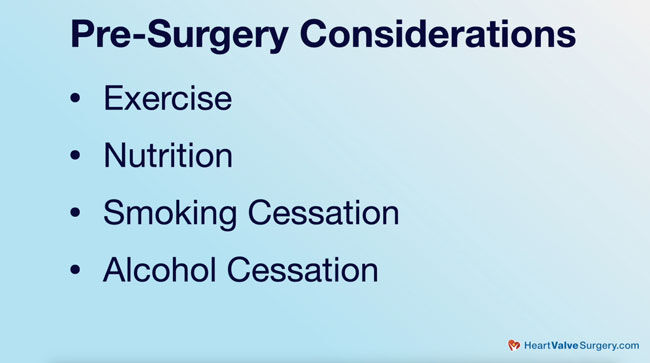
- A key pillar of ERAS Cardiac is minimization. “Within the Enhanced Recovery After Surgery protocol, minimization is critical,” states Dr. Rawn Salenger, ERAS Cardiac Board Member and cardiac surgeon at University of Maryland. “There are four things that we tell patients to ask their medical teams to minimize. Those are opioids, postoperative nausea/vomiting, kidney injury, and blood transfusions.”
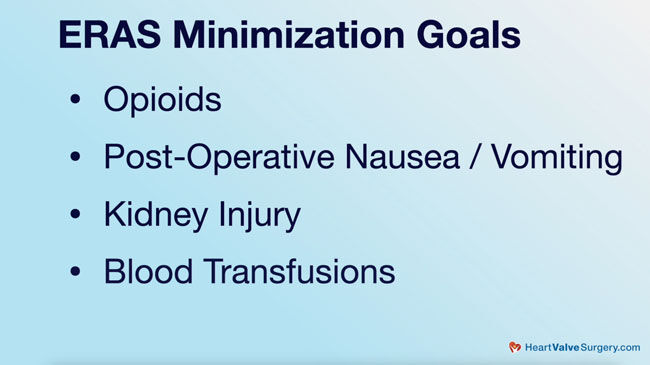
- To achieve superior outcomes, the utility of a patient-centric, multidisciplinary team is critical. “The experts have gathered here today to inspire one another to really approach Enhanced Recovery After Surgery in a multidisciplinary team approach,” states Vicki Morton-Bailey, DNP, ERAS Cardiac Board Member and Director of Clinical and Quality Outcomes at Providence Anesthesiology Associates. “We have to always remember though to keep the patient in the center. Our team will consist of your surgeon, anesthesiologist, you might have a nurse practitioner, bedside nurses, pharmacy, nutrition, physical therapy. We have a huge team of people to make it happen and to make it work so that patient outcomes are improved.”
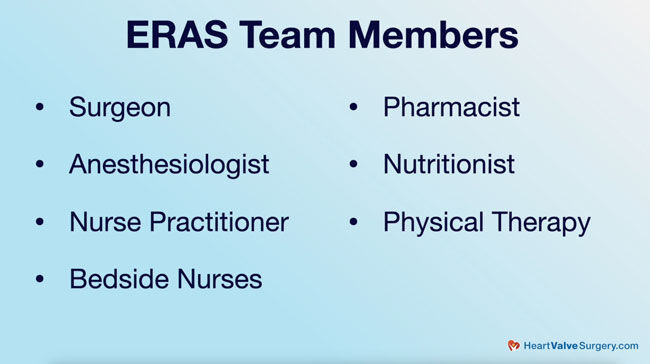
- Mobility after surgery has been shown to help patients heal. Dr. Rakesh Arora, ERAS Board Member and Critical Care Specialist at University Hospitals, states, “Thinking about how mobilization is a key element for the ERAS pathway, think about movement to heal. You need to move to heal. That’s a big portion of your recovery process.”
- Post-operative, patient freedom from tubes, drains and ventilators is very important. “Patients are tethered, generally speaking, after cardiac surgery to a lot of tubes and drains,” states Dr. Michael Grant, ERAS Cardiac Board Member and cardiac anesthesiologist at Johns Hopkins University School of Medicine. “ERAS turns that on its head. The idea is that we are liberating you from organ support as early as possible and maximizing your freedom.”
- A key piece of advice for patients is to ask your medical team if they are deploying the ERAS Cardiac approach to recovery. Dr. Daniel Engelman states, “I think if I was a patient, I might want to ask my physician, my surgeon, are they following the most up-to-date advanced recommendations from ERAS, which would include such things as getting them mobilized and out of bed quickly, reducing the amount of opioids they’re taking after surgery, and getting them home as quick as possible.”
Thanks to the ERAS Cardiac Society!
On behalf of the patients at HeartValveSurgery.com and patients all over the world, thanks so much to ERAS Cardiac. It was downright wonderful to attend the ERAS Cardiac Society Expert Retreat and learn how this extraordinary team is helping patients recovery in a new and transformative way.
Related Links:
Keep on tickin!
Adam
P.S. For the deaf and hard of hearing members of our community, a transcript of the video is provided below.
Video Transcript:
Adam Pick: Hi everybody, it’s Adam with heartvalvesurgery.com and we are in Austin, Texas at the Enhanced Recovery After Cardiac Surgery Society meeting. I’m thrilled to be joined by Dr. Dan Engelman, who is the President of ERAS Cardiac. Dr. Engelman, great to see you again.
Dr. Daniel Engelman: It’s nice to see you.
Adam Pick: Yeah, I guess the patients who are watching this are wondering what is the ERAS cardiac meeting?
Dr. Daniel Engelman: We’ve invited the best and brightest minds from around the world to join us together for this retreat to share practical protocols, guidelines, and tips to have patients heal rapidly and completely following cardiac surgery.
Dr. Subhasis Chatterjee: ERAS or Enhanced Recovery After Surgery really focuses on motivation, and that motivation begins even before surgery. We want patients to feel that they’re just not a passenger on this journey, but they’re actually a driver. That begins before the operation even starts. We want patients in the best possible condition and shape that they can be in. That might mean exercise beforehand, better nutrition beforehand. That also includes stopping smoking and alcohol for a period of time. All of this is designed so that the patient’s recovery can be better.
Dr. Rawn Salenger: Within Enhanced Recovery After Surgery protocol minimization is critical. There are four things that we tell patients to ask their teams to minimize. Those are opioids, postoperative nausea vomiting, kidney injury, and blood transfusions.
Vicki Morton-Bailey, DNP: The experts have gathered here today to inspire one another to really approach Enhanced Recovery After Surgery in a multidisciplinary team approach. We have to always remember though to keep the patient in the center. Our team will consist of, of course, your surgeon, anesthesiologist, you might have a nurse practitioner, bedside nurses, pharmacy, nutrition, physical therapy. We have a whole huge team of people to make it happen and to make it work so that patient outcomes are improved.
Dr. Rakesh Arora: Thinking about how mobilization is a key element for the ERAS pathway, think about movement to heal. You need to move to heal. That’s a big portion of your recovery process. We need to be able to provide the appropriate support and education for patients before the operation, before they have their incision, support teams to get people up and moving after their operation as soon as possible and prepare for healthy living upon discharge.
Dr. Michael Grant: Patients are tethered, generally speaking, after cardiac surgery to a lot of tubes and drains. ERAS turns that on its head. The idea is that we are liberating you from organ support, that’s mechanical ventilation, some of the other alternatives that are really supporting the organs, and then very specifically avoiding foreign objects, tube strains, lines and getting them out of the patient as early as possible and maximizing your freedom.
Adam Pick: Dr. Engelman, we have learned a lot here at the ERAS cardiac meeting. I’ve got to ask you an important question for the patients at heartvalvesurgery.com, patients all over the world. What is your advice for them specific to ERAS?
Dr. Daniel Engelman: That’s a great question, Adam. I think if I was a patient, I might want to ask my physician, my surgeon, are they following the most up-to-date advanced recommendations from ERAS, which would include such things as getting them mobilized and out of bed quickly, reducing the amount of opioids they’re taking after surgery and getting them home as quick as possible.
Adam Pick: Dr. Engelman, on behalf of all of the patients in our community, thanks so much to you and your entire team and the attendees at the ERAS Cardiac meeting.
Dr. Daniel Engelman: Thank you.

